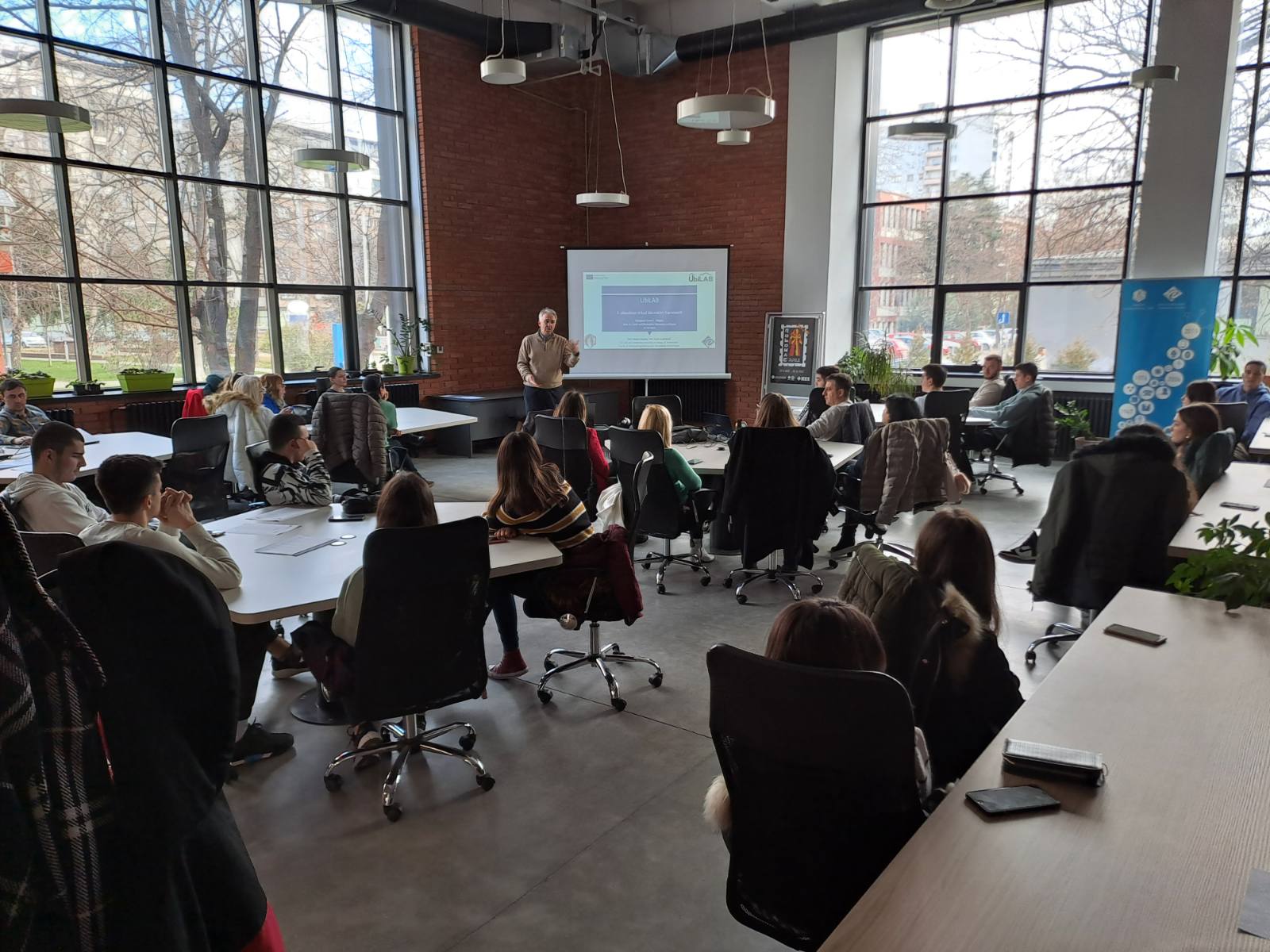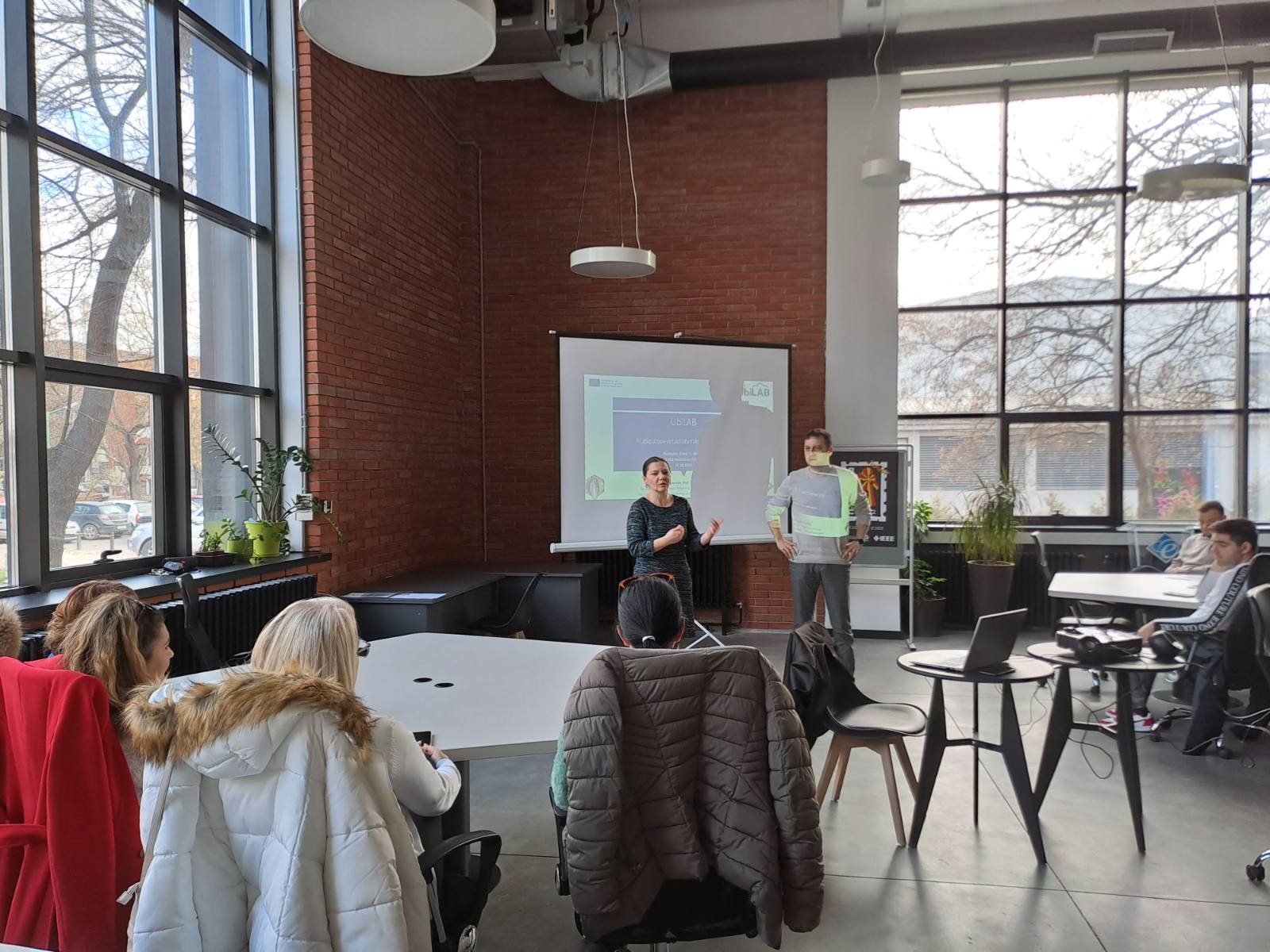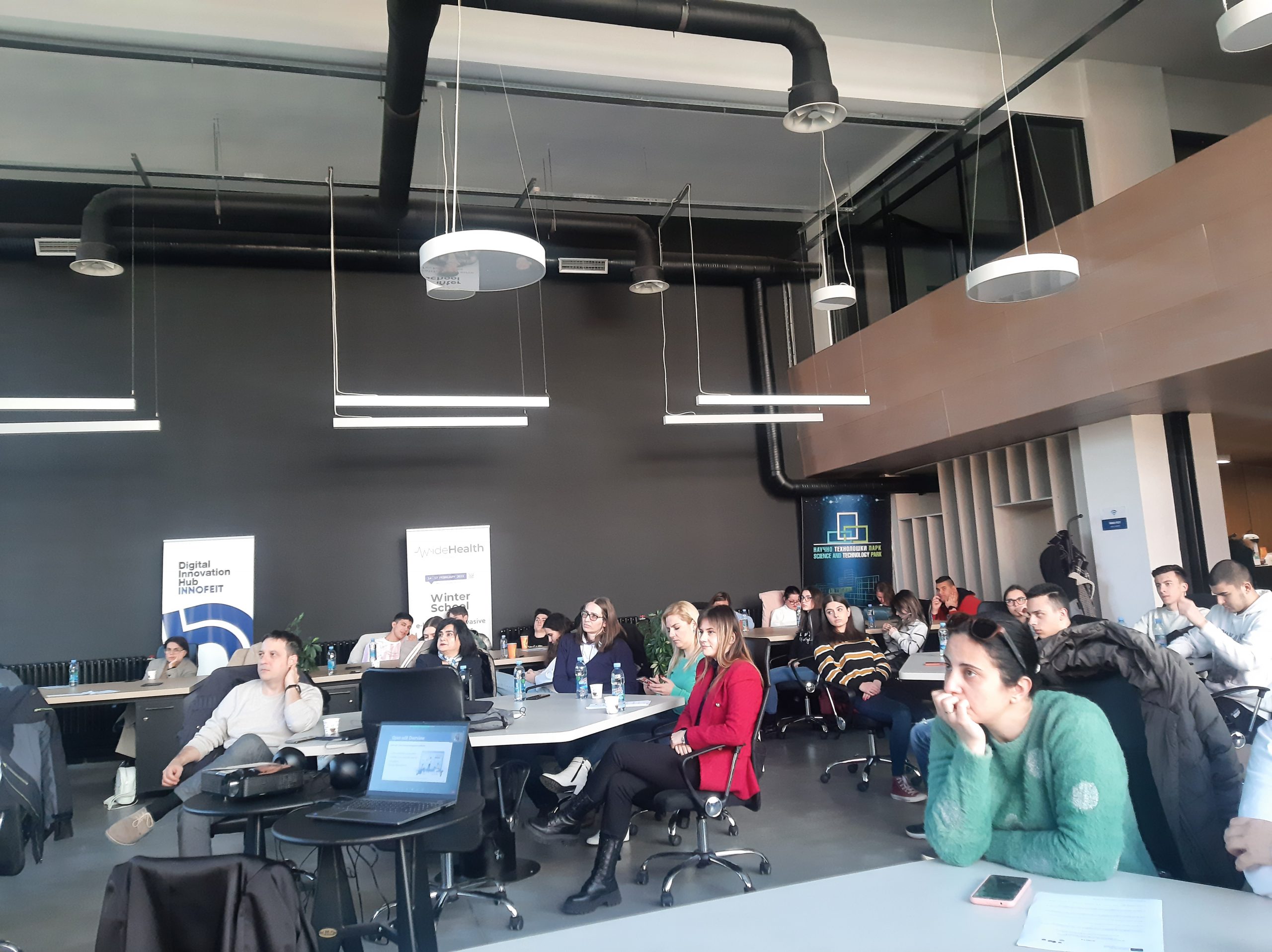As part of the activities within the Project: ‘A Ubiquitous Virtual Laboratory Framework – UbiLAB’ from the Erasmus+ EU Program, a Multiplier Event was organized yesterday at the Faculty of Electrical Engineering and Information Technologies (FEEIT) at the University of ‘Ss. Cyril and Methodius’ in Skopje.
The Dean of FEEIT, prof. Dimitar Tashkovski, Ph.D., welcomed the participants and during his talk emphasized the need for logical upgrading of the distance learning management systems with options for virtual laboratories. ‘These virtual laboratory systems are envisaged to upgrade, but not fully replace students’ experience obtained at laboratories during practical exercises’, Tashkovski stated in front of the present participants at INNOFEEIT.
According to professors Marija Kalendar and Zivko Kokolanski, who are the main creators and coordinators of the project, The UbiLAB Framework has several main objectives: designing a common and central platform for ubiquitous virtual and remote laboratories, as well as software laboratories implemented in the cloud; providing possibilities for digitalization of existing laboratory experiments; and finally, improving the realistic, yet virtual, students’ experience in these virtual laboratories. Additionally, the complete platform shall encompass different endpoint elements, such as: real hardware laboratories, virtual/simulated experiments and software and resources needed for virtual exercises.
During the presentations, the know-how and other information related to the Project was conveyed, and furthermore the possibility for implementing elements from the UbiLAB framework in the curricula of the secondary schools, whether vocational schools or gymnasiums, was emphasized. Similar implementation is possible even for industrial companies with limited (hardware/software) resources that are interested in providing remote access to their employees and clients.
In the course of the event, some of the results of the Project were presented, most of which related to practical solutions implemented in the UbiLAB Framework, designed by the Faculty of Electrical Engineering and Information Technologies staff members, as well as the Project partners: the Faculty for Electrical Engineering and Computer Science – University of Maribor, Slovenia and the Anhalt University of Applied Sciences, Germany.
In conclusion, more than 40 participants from companies working in similar fields took part at the event, including Project’s associate partner companies as well as students and professors from high schools and vocational high schools that have a long-term cooperation with FEEIT, such as: “Mihajlo Pupin”, Skopje, “Vlado Tasevski” Skopje, “Ilinden” Skopje, “Orce Nikolov”, Skopje.






